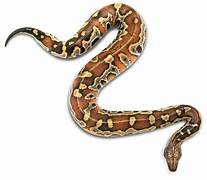
Elvish Yadav, a YouTuber, has been accused of supplying snake poison at a rave party. A complaint has also been lodged against him. An FIR has been registered against Elvis and seven others along with him.
According to the news agency ANI, this FIR has been filed for providing snake poison at a rave party. 9 snakes were also found at the spot during the raid conducted by the police.
The FIR has been filed under the Wildlife Protection Act, 1972, following a complaint by former Union Minister and BJP MP Maneka Gandhi from PFA.
In the FIR, the organization says, ‘We found a YouTuber named Elvish Yadav with his entourage using snake venom and live snakes to shoot rave parties and videos at a farm house in Noida. Foreign girls are invited there and along with them snake poison and other intoxicating substances are consumed.
Elvish Yadav has denied the allegations leveled against him and has said that he will fully cooperate with the investigation. He also said that no drugs or intoxicants were found from him.
Snakebites for intoxication have been practiced in China, Russia and the West for many years. Even in India, there is an increase in the number of people taking snake poison at parties.
On the other hand, India leads the world in cases of death due to snake venom. Yet snakebite is seen as a ‘village and poor’ problem.
Snakebite intoxication at rave parties?
Venomous snakes from India are in great demand from western countries including China, Russia and France. Even in foreign countries, some people have the hobby of keeping such snakes.
Special precautions are taken by the Excise Department to prevent its smuggling by air. But it has been seen that snakes are smuggled through land routes like Nepal and Bangladesh. Often such rackets have been exposed.
In India, rave parties or New Year’s parties are getting more and more drunk from snake bites for fun. A few days ago, the racket of sending poisonous snakes from the forests of Gujarat for parties in cities like Mumbai was also exposed.
According to sources, drug addicts are addicted to drugs like morphine or opium. But due to frequent consumption of it, they stop getting intoxication from it.
So, they turn to dangerous substances for further intoxication. One alternative is snake venom. Some people keep baby snakes at parties and torment them to get intoxication or pleasure from their bites.

Why is antidote called poison?
Different species of snake bites deliver different amounts of venom. It means that the amount of venom is more in different snakes of the same species.
This means that a snake’s age, sex, or environment can make its venom more or less lethal. Therefore, the symptoms of the effects after snakebite are also different. That is why its treatment becomes complicated. However, in the case of snakebite, it is true to say that ‘poison is treated with poison’.
Many chemicals derived from snake venom can be beneficial in the treatment of certain diseases. Many medicines that use poison are still in use today. An antidote is prepared from snake venom, but it is still being researched.
An injection syringe removes the venom and then uses it as an ‘anti-venom serum’. In India, traditional methods are also used to remove poisons. (There is a co-operative society in Tamil Nadu that does this type of work. It sells poison to companies.)
Even some animals like horses or some goats and sheep are not harmed, poison is given in such quantity. Due to this, their body develops immunity against snake venom. Antibodies are then purified from their blood to produce an anti-venom vaccine.
Snake venom is also used in anti-rheumatic, pain reliever and anti-inflammatory medicines.
According to scientists, painkillers can be made from snake venom without side effects. Therefore, research is currently underway in this direction.
One liter of venom of some snakes can be worth up to one crore. Often the companies that manufacture the antidote get the poison illegally.

Cycle of snake venom:
During the rainy season, especially in rural areas, the incidence of snakebite increases. If snakebite is not treated immediately, death is more likely.
According to snake experts, agriculture in rural areas and the hatching season of snakes could be the reasons for the increase in snakebites during monsoons.
There are different types of snake venom. The venom of some snakes causes death immediately, while the venom of some snakes can take a long time to become fatal.
Some snakes bite and release venom into the body of their prey through their sharp teeth. Therefore, the poison is mixed directly into his blood stream. But like the Mozambique Spitting Cobra
Some snakes spit venom.
Senior Scholar Dr. Hemang Joshi has been studying snakebite for 20 years. He spoke to BBC Gujarati about this.
He says, “The venom of cobra and black snakes is neurotoxic, while the venom of snakes and snakes is hematotoxic. Neurotoxic venom affects the nervous system of the body. Due to this, the affected person shows symptoms like paralysis, difficulty in breathing. When the hematotoxic venom enters the body, it It gets mixed with the blood. It causes internal bleeding (bursting of blood vessels) in the body,” he said.
“When a snake bites, the effects of its venom can be seen in the body within 10-15 minutes. But the venom becomes most dangerous within 30-45 minutes. After a black snake bite, it often takes one and a half to two hours for its venom to take effect and become most dangerous within four to six hours. There is
The venom of loose and loose snakes does not take effect immediately. After their bite, there is swelling and severe pain in the bitten area,” he also said.
According to a study, 80 percent of all snake venom deaths worldwide occur in India. The death toll is around 64,000. Around 400,000 people worldwide have suffered paralysis, blindness and other permanent disabilities from snake bites.
1.2 million people died due to snakebite during the two decades of 2000-2019. Half of these victims were between the ages of 30 and 69. The study also revealed that 25 percent were children.
According to experts, the actual figure may be much higher than the figure recorded in government documents. This problem is serious in Uttar Pradesh, Rajasthan, Madhya Pradesh.
The situation in Bihar, Jharkhand, Odisha, Andhra Pradesh and Gujarat was critical during 2001-2014. For the last few years, efforts are being made in this direction under the National Health Mission, considering snake venom as a problem.
Caution is safety.
According to snake experts, very simple measures can be taken to avoid snake bites. Also, if the snake’s behavior is known, harm to both the snake and the human can be avoided.
According to experts, venom is the hunting weapon of snakes. Because it is effective and beneficial, snakes use it very sparingly. So snakes use it only when there is no other option.
If you encounter a snake, do not panic or disturb the snake.
During the rainy season, the baby snakes come out from the eggs. Also, frogs, mice, rats are also easily found and come to human parts. So be more careful during this time.
Take special care in kitchens, storage rooms, haystacks, garbage disposals, and dark places. When going to such a place, keep a torch in your hand and make some noise before touching it.
Use a mosquito net when sleeping in fields or open spaces.
Snakes or other animals signal their aggression by showing their sharp teeth or making noises before attacking, biting. But Black Cobra doesn’t warn like that.
What to do and what not to do after a snakebite?
- Tie a finger-sized bandage over the snake bite to reduce blood flow.
- Never bandage too tightly. Doing so may result in amputation.
- Go to an MD physician doctor or a government hospital as soon as possible. Don’t go to Mantrik-Tantrik, Bua.
- Do not move the body too much after the snake bite, otherwise the poison can spread rapidly in the body.
- Do not drink water or liquids.
- Remove body jewelry, watch.
- Wear long rubber boots when working in agriculture.
- If wearing tight clothes, loosen them.
- Do not attempt to draw blood by mouth. Do not attempt to cut or draw blood from the bite.
- Do not apply ice or chemicals to the wound. Do not leave the bitten person alone, be patient.
- Do not try to catch or resist a venomous snake bite. Even a dead snake should be handled with utmost care.
- Even if a snake is recently dead, its teeth may still contain venom and can be fatal.